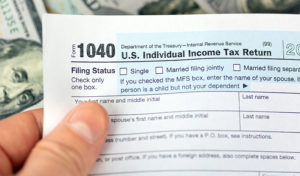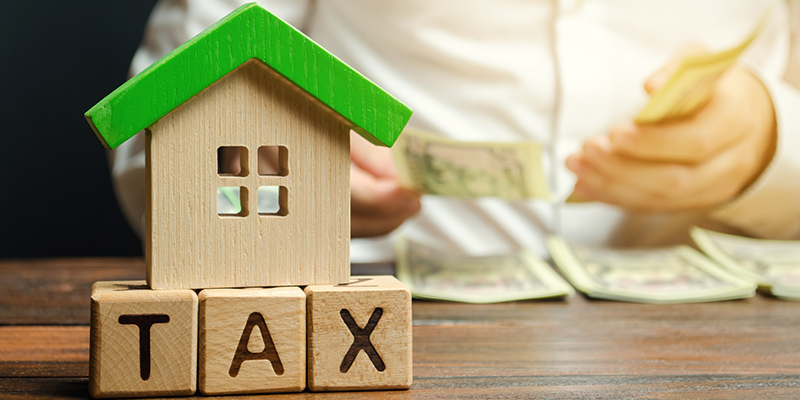Investing in rental real estate is a great way to earn income and build a portfolio. Of course, it comes with some associated expenses, such as paying a tax on rental income. Fortunately, in the United States, tax laws on rental property are generally favorable to property owners.
Do You Pay Tax on Rental Income?
Yes. In general, those who rent out a property for 15 days or more out of the year must pay taxes on rental income. But, if you rent out a property for only 14 days or fewer out of the year, you don’t need to pay or report taxes on rental income.
Rental income works just about the same way as any other type of income. This means rental income is also subject to taxation and must be reported in your tax return. The same applies if you only own a portion of a rental property, which would require you to report your portion and pay tax on rental income.
What Counts as Rental Income?
Rental income is the amount you receive as rent from your tenant in exchange for the use of your property. But, other types of income can also count as rental income and are, therefore, subject to rental income tax. These include security deposits, advance rent, payment for the termination of a lease, expenses paid by a tenant, and trade for services.
1. Advance Rent
This refers to any amount you receive as a rent payment in advance. Regardless of the accounting method you employ, you must report advance rent in your rental income during the year you receive it from your tenant. For instance, if you receive $1,000 for the first month’s rent and another $1,000 for the final month’s rent, you have to report $2,000 in your rental income in that year even if the final month falls in the following year.
 2. Security Deposits
2. Security Deposits
Security deposits are designed to be returned to the tenant at the end of the lease. In that scenario, security deposits are not taxable.
However, if you end up deducting a sum from their security deposit to pay for repairs, you have to report the amount you deducted as rental income. The same goes if your tenant uses the security deposit as a final payment for rent (as that would make it advance rent).
3. Payment for the Termination of Lease
More often than not, lease agreements charge a monetary penalty if the tenant cancels the lease before its expiry. The amount you earn from this is considered rental income, too, and must be reported in your tax return in the year you receive it.
4. Expenses Paid by Tenant
If a tenant pays for an expense that they are not required to cover, that expense is considered rental income on your part. Let’s say your lease agreement does not oblige your tenant to pay the water bill. If they do and deduct the amount from the rent they pay, you must include both amounts as your rental income (the cost of the water bill and the rent they paid). If it is a deductible rental expense, then you may deduct it from your rental income.
5. Trade for Services
Sometimes, you will receive property or services from a tenant in lieu of rent. This still counts as rental income. To know how much to report, look up the fair market value of the property or services rendered.
How Is Rental Income Taxed?
The principle behind the tax on rental income is rather simple. Any net rental income you earn is taxable on the same level as your ordinary income. As such, if you managed to generate $20,000 in net rental income and you belong to the 22% tax bracket, that would mean you owe $4,400 in taxes on your rental income.
In simple terms, the rental income tax rate is generally the same as your ordinary income tax rate. The formula is as follows:
Net Rental Income * % Tax Bracket = Rental Income Tax
What Are Rental Property Tax Deductions?
As with taxes on ordinary income, there are certain deductions you can make to your rental income, too. You can deduct the expenses that are necessary for managing and maintaining your rental property. These include interest, rental property taxes, mortgage interest, depreciation, utilities, advertising, insurance, maintenance, and repairs. You can also deduct the cost of goods that you purchase to use for maintaining your rental property.
As discussed in the previous section, tenants will sometimes pay for certain expenses and deduct the cost from their rent. If the expense is deductible, you may deduct it from your rental income as well.
Repairs vs Improvements
When it comes to taxes, rental property repairs trump improvements. This is because the cost of improvements is generally not deductible, whereas the cost of repairs is. The only way you can recover the cost of improvements is through depreciation, which can span as much as 27.5 years, using Form 4562. In contrast, you can deduct the entire cost of a repair in just one year.
But, how do you know if something is an improvement rather than a repair? According to the Internal Revenue Service (IRS), an improvement is an expense that is paid for the “betterment or restoration or adaptation to a new or different use.”
Considering the above, as a rental property owner, aim for repairs instead of improvements. Instead of replacing the entire roof if there is a leak, repair or replace only the shingles that have grown damaged. If a floor tile has cracked, replace only that damaged tile and not the whole floor. You should also tread lightly with upgrades and renovations, as those are generally considered improvements.
How to Report Rental Income on Your Tax Return
The first thing you must know is what forms to use to report your rental income and expenses. If you rent real estate, you would normally use the following forms:
 Once you have your forms, you can begin filling them out. On Schedule E, list down the total income, expenses, and depreciation amount for your rental property. When determining depreciation, the Instructions for Form 4562 should give you some guidance.
Once you have your forms, you can begin filling them out. On Schedule E, list down the total income, expenses, and depreciation amount for your rental property. When determining depreciation, the Instructions for Form 4562 should give you some guidance.
If you own and operate more than three (3) rental properties, you will need to complete more than one Schedule E form to list down all of your own rental real estates. Make sure to fill out lines 1 and 2 as well as the street address for every rental property. Only one “Totals” column should be filled out in only a single Schedule E. This is the combined totals of all the properties listed in all Schedules E.
Completing and filing your tax return can quickly become messy and confusing. Even if you employ an accountant, make sure to maintain up-to-date and accurate records to make tax season easier.
Is Rental Income Taxable? Answered!
To sum it up, rental property owners do have to report and pay tax on rental income if they rent out the property for more than 14 days a year. Dealing with taxes, though, can be frustrating if you don’t have the patience for it. A property management company can help with this, as most companies offer tax assistance as part of their services.
If you need a property management company, start with Rental Choice. Our online directory allows you to search for reputable and reliable companies by area.
RELATED ARTICLES:
- Homeowners Insurance For Rental Property vs Landlord Insurance vs Rental Property Insurance
- 10 Best States To Invest In Real Estate In The U.S.
- The Ins And Outs Of Rental Property Maintenance and Repairs




 Company
Company